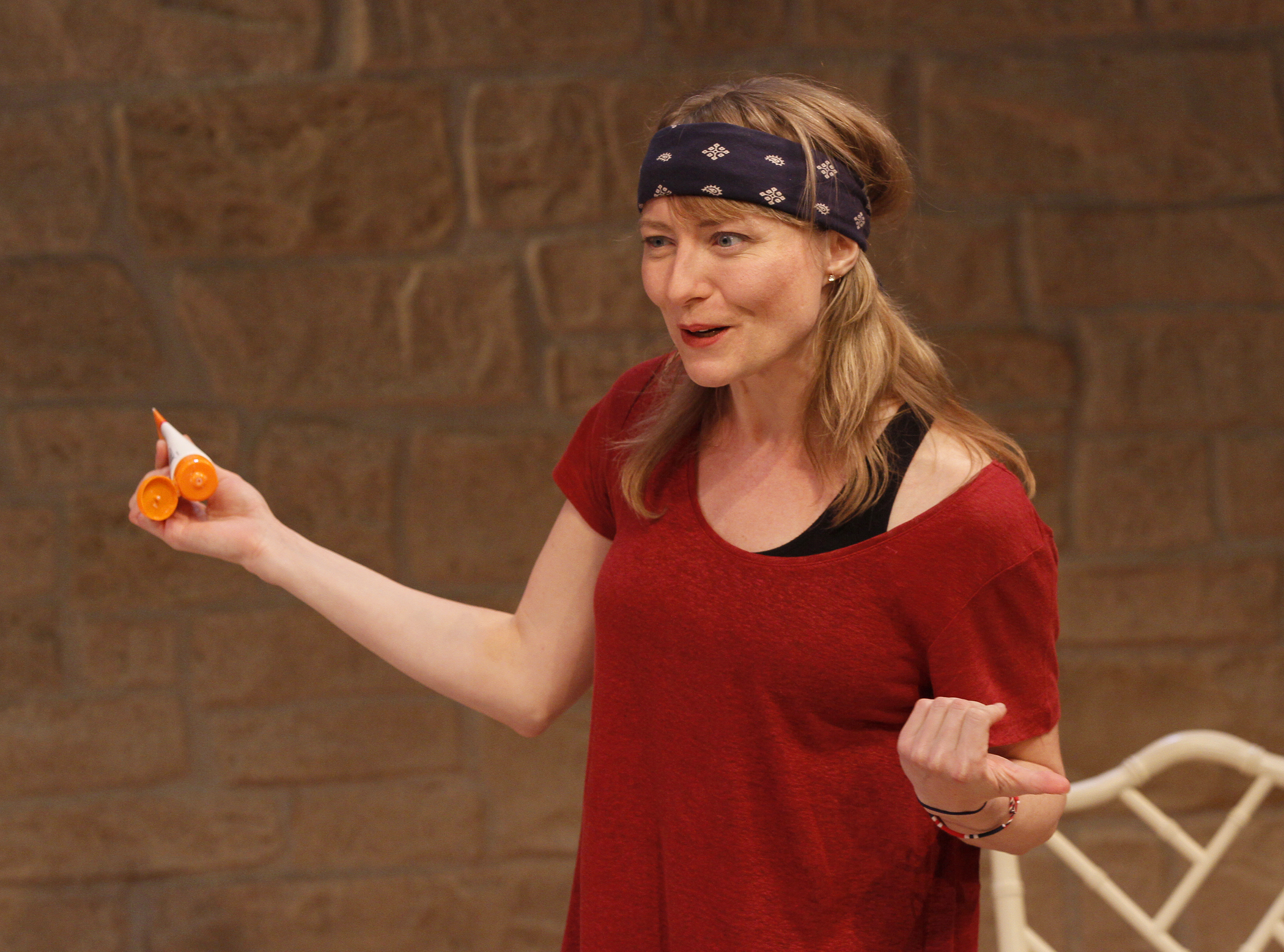Other Desert Cities
ACT Theatre, 700 Union St., 292-7676, acttheatre.org. $41 and up. Runs Tues.–Sun. Ends June 30.
Palm Springs interprets the notion of “White Christmas” a little differently than Bing Crosby’s idyll: linear white furniture, tennis whites, all-white decorations on the tree. To this blanched hideaway—nicely built by Robert Dahlstrom and clothed by Francis Kenny—proud old-guard GOPers Lyman and Polly Wyeth (Kevin Tighe and Pamela Reed) retired after a socially embarrassing personal tragedy—their elder son Henry’s involvement in an anti–Vietnam War terrorist incident. At Christmas 2004, the family gathers in the chic desert pad: pill-popping daughter Brooke (Marya Sea Kaminski), who’s just drafted a controversial memoir about Henry’s parent-driven crackup and suicide; second son Trip (Aaron Blakely), a reality-show producer; and recovering alcoholic Silda (a deliciously addled Lori Larsen), Polly’s sister of liberal bent. As in his TV series Sisters and Brothers, playwright Jon Robin Baitz again focuses on political rifts within a family. Which is thickest—tribe, blood, or values?
Directed by Victor Pappas, ACT’s production got off to a somewhat disjointed start on opening night, but it will likely meld and deepen with passing days. The accomplished cast hadn’t quite found its rhythm—though in fairness to the actors, the often-funny script is laden with exposition that actual family members wouldn’t need to share. (Of her yet-unpublished memoir, Brooke tells Trip: “It’s about our brother, who went to war with our parents, joined a cult, disappeared, and then planted a bomb in an army recruiting station before killing himself.”) Don’t be discouraged. The meticulous setup has a payoff that provokes an almost Rumsfeldian reconsideration of what we thought we knew (underscored with interstitial radio reports on the Iraq War).
There’s ample tension in the battle of wills between Brooke, seething with the righteous fury of the underinformed, and the cynically corrosive Polly, who tries to leverage her love against the memoir. Tighe’s Lyman is so doddering, he’s mainly an object of pity. More successfully, Blakely’s facile, amiable Trip is delightfully fed up with his family’s venomous sparring; having been born only a few years before Henry’s misadventure, he’s the peacemaker with the least skin in the game.
“Telling the truth is an expensive hobby,” Silda tells her beloved niece. So is writing a play or a memoir about privileged people flogging dead horses because they can afford to. But that’s what smart writers have been doing since Oedipus, Electra, and Hamlet. Even if Baitz’s insights here aren’t profound, his dissection of this Reaganite clan is culturally incisive. And he makes a mostly entertaining spectacle out of watching the Wyeths get pickled in their own juices. Margaret Friedman
Tall Skinny Cruel Cruel Boys
Washington Ensemble Theatre, 608 19th Ave. E., 325-5105, washingtonensemble.org. $15–$25. 7:30 p.m. Thurs.–Mon. Ends June 24.
In The Hero With a Thousand Faces, Joseph Campbell contended that women were often the reward waiting for men at the end of victorious quests. But he never had to consider actress Hannah Victoria Franklin—a heroine in her own right, and one with more faces than Campbell has Jungian archetypes to describe.
Tall Skinny Cruel Cruel Boys is a case in point. While every WET production is a team effort, Franklin has become the statuesque tabula rasa that the troupe has time and again hung its fortunes upon. The greater the challenge, the more resourceful and dependable she’s become, and Caroline McGraw’s one-act premiere is no exception.
Though the writing’s somewhat simplistic and obvious, Franklin gives a tour-de-force performance as Brandy, a children’s-party clown who doesn’t much care for kids—unless they’re old enough to be seduced, like the “almost 17” Jack (Jay Myers). Compounding matters are her intermittent fumblings with a toddler’s father (Billy Gleeson), and the possibility that the one guy who might be a good romantic fit is Reverb (Scott Ward Abernethy)—another kid’s clown she dismisses because he doesn’t match her physical criteria.
And if that weren’t enough to keep a poor girl awake at night, there’s a mangy red demon dwelling under her bed, who threatens to pull her down from reality into some hellish netherworld. In McGraw’s morality fable, sex leads just as easily to depravity as to love.
Consider, then, that WET is to Seattle’s theater scene as the Coen brothers are to the world of cinema. When they succeed, they’re brilliant—and even when they don’t, which is rare, their failures are thrillingly performed without a net.
In this instance, director Jane Nichols wisely substitutes a jaunty momentum and a few under-the-covers chills for the character development absent from McGraw’s script. Everyone in her play exists in the periphery of Brandy’s orbit; their motivations ebb and flow only in response to hers.
Still, the opportunity to see Franklin roam the stage as a red-nosed clown and do battle with a villain straight out of storage from some unaired episode of Buffy the Vampire Slayer is alone worth the price of admission. It ain’t art, but it ain’t bad either. Kevin Phinney
E
stage@seattleweekly.com




